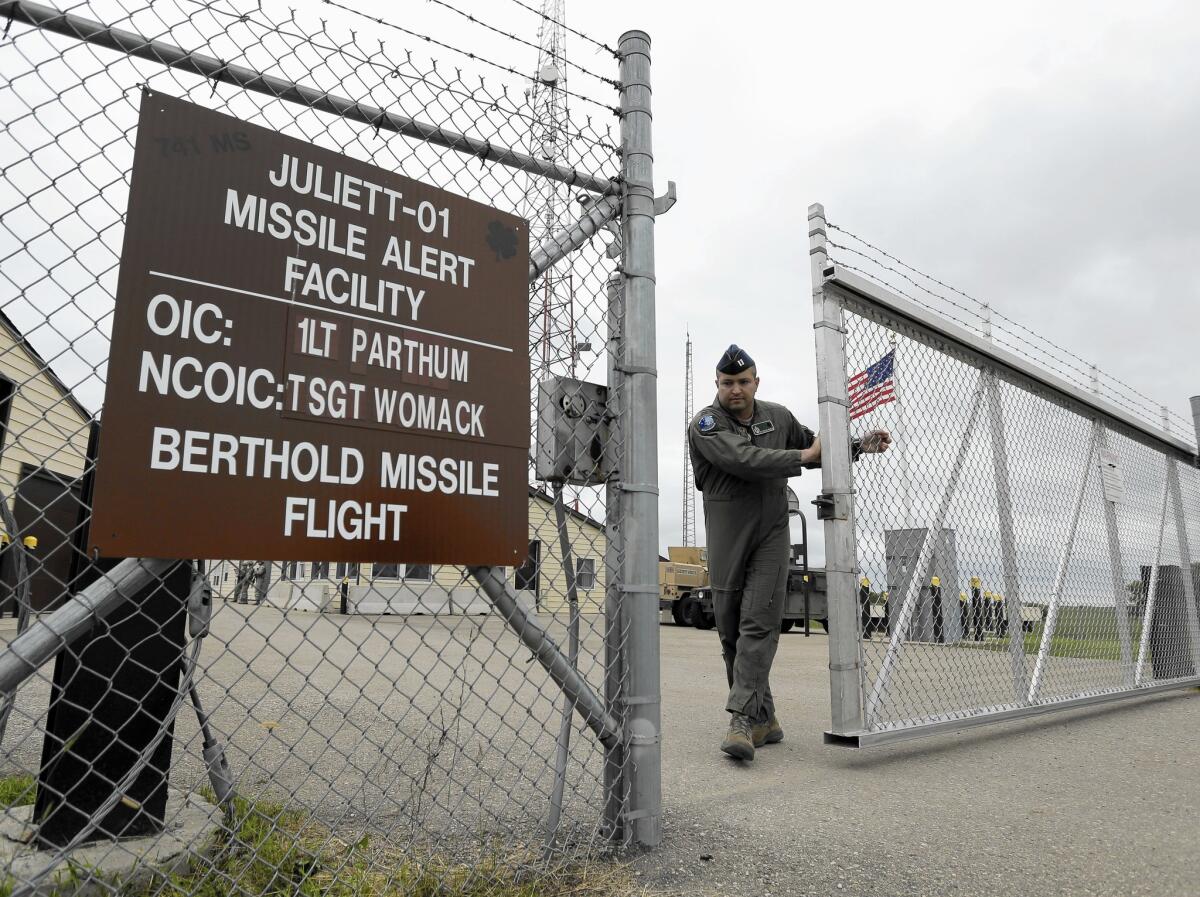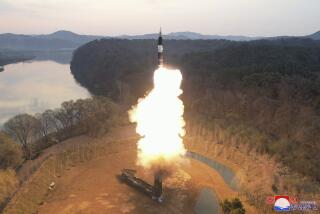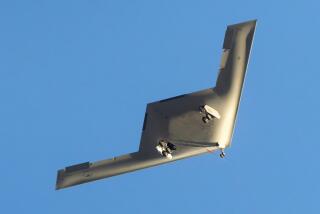North Dakota nuclear missile base struggles to recover from scandals

A bitter wind relentlessly whips across acres of frozen prairie at this remote base, where hundreds of airmen and women stay on alert around the clock to do the unthinkable: launch a nuclear attack.
This is the only installation in the nation that hosts both intercontinental ballistic missiles and B-52 bombers, two legs of the so-called nuclear triad with submarines. Yet it has been besieged by scandals and mishaps that have marred its historic role.
In August 2007, crews at Minot mistakenly loaded six cruise missiles carrying nuclear warheads onto a B-52 heavy bomber that flew to another base in Louisiana. The warheads were not properly guarded for 36 hours before anyone realized they were missing. Partly as a result, the secretary of the Air Force was forced to resign.
In the last two years, two commanders have been dismissed at Minot and one reprimanded after Pentagon brass lost confidence in their ability to lead. In addition, 19 officers were stripped of their authority to control and launch the nuclear-tipped missiles that sit in silos, and did not get it back until they completed additional training.
Now the vast base, close to the Canadian border, is struggling to recover.
A 60-page Pentagon report released last week detailed problems in the nuclear force since the Cold War ended two decades ago. The report singled out Minot as a “special case” that needed increased attention.
Maintaining the base’s 27 B-52 bombers and 150 Minuteman III missiles, which were built and designed in the 1960s, is a constant struggle.
“Hydraulic seals leak, equipment breaks, transport vehicles fail more frequently, and aircraft are cycled into limited hangars for maintenance,” the Pentagon’s report said.
Morale has been cited as a persistent problem. A missileer typically wakes at dawn, attends briefings and drives with another missileer — sometimes for more than an hour — to a ranch house ringed by razor wire.
The airmen then take an elevator 70 feet down to a bus-sized steel capsule, called a launch-control center, that is supposed to withstand a nuclear blast on the surface. Responsible for 10 ICBMs that are miles away, the airmen spend 24 hours below ground, breathing recycled air.
Cleaning crews have begun scrubbing the 15 launch-control capsules — some of which hadn’t been thoroughly cleaned since they were built in 1962.
Winter weather can get so bad that missileers sometimes spend 48 hours, or even 72, in the capsule.
“It’s rare, but it does happen,” said Lt. Col. David Rickards, deputy group commander of a missile unit at Minot. “It all depends how much snow is out there and the road conditions we’re faced with.”
The Pentagon report cited complaints of too few staff at the medical clinic, long waits at the pharmacy, and inadequate day care for children of missileers and maintenance crews.
“It can be a tough place to work,” said Mark Gunzinger, a former B-52 pilot who was stationed at Minot for six years in the 1980s and who is now an analyst at the nonpartisan Center for Strategic and Budgetary Assessments in Washington. “It’s far from family and friends, cold as can be, and if you throw bad leadership into the mix, it’s easy to find yourself depressed with a lack of focus.”
An initiative called the “force improvement program,” based on airmen’s suggestions on how to improve morale, appears to be helping.
The Air Force will spend $12 million for new items, including maintenance trucks, mattresses and weight-lifting equipment for crews. The on-base sports bar, J.R. Rockers, is closed for renovations as part of the initiative.
“Things have really started moving along over the last several months,” said Lt. Kathleen Fosterling, 24, a missileer. “We like the changes so far.”
Earlier this month, Lt. Col. Jimmy “Keith” Brown, a missile squadron commander, was fired because he “made statements to subordinates that created a perception within his squadron that pregnancy would negatively affect a woman’s career,” according to Lt. Col. John Sheets, spokesman for Global Strike Command, which is in charge of the Air Force’s nuclear force.
Defense Secretary Chuck Hagel made it a priority to fly to Minot last Friday after announcing plans at the Pentagon to improve training, increase oversight and address security lapses in the nuclear force.
He noted that the crews handling nuclear weapons see few prospects for promotion in the Air Force, and do jobs with little private-sector applicability.
“You shouldn’t be penalized for your service as a missileer or your service here,” Hagel told several hundred airmen. “You should be valued and be given skills that can be applied to other career paths, if that’s what you want. We’re going to change that.”
william.hennigan@latimes.com
Twitter: @wjhenn
More to Read
Start your day right
Sign up for Essential California for news, features and recommendations from the L.A. Times and beyond in your inbox six days a week.
You may occasionally receive promotional content from the Los Angeles Times.







